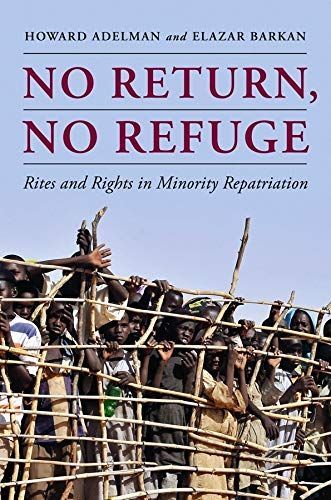
No Return, No Refuge Rites and Rights in Minority Repatriation
Refugee displacement is a global phenomenon, uprooting hundreds of millions of individuals over the last century. Yet until the 1980s, repatriation, or the right of return, was not a focus of refugee policy, and though it might enjoy a privileged position in today's debates, repatriation remains an elusive outcome for many victims of ethnic conflict. According to Howard Adelman and Elazar Barkan, the roots of this disconnect lie in the modern transformation of repatriation into a universal right, which undermines political solutions to refugee crises. Surveying cases of ethnic displacement throughout the twentieth century, Adelman and Barkan juxtapose the empirical lack of repatriation against the belief in the right of return as it has evolved since the 1940s, revealing its distortion of international efforts at conflict resolution, as well as its prolonging of ethnic and national conflict and aggravation of the fate of the displaced. They find that repatriation only takes place when identity, defined by ethnicity or religion, is not at the core of the displacing conflict, and when refugees do not make up a minority in their original country. Rather than perpetuate a ritual belief concerned with national aspirations, Adelman and Barkan call for rehabilitation policies that treat the suffering of the displaced, and they share ideas for policy that respect the different displacements and tensions between refugees' conflicting rights.